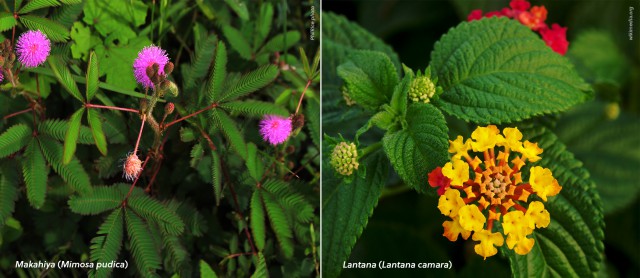
Makahiya (Mimosa pudica) and Lantana (Lantana camara), medicinal plants known to treat common diseases in humans, were also found to be beneficial to rice plants, recent study showed.
In a research, Nueva Ecija High School student Lena Nagaosa with her adviser Jerandel Gaspar and PhilRice researchers Ma. Salome Duca and Dindo King Donayre, gathered that said perennial weed and flowering plant can fight bacterial leaf blight (BLB) in rice.
BLB is a rice disease caused by the bacterium Xanthomonas oryzae pv. oryzae. It is prevalent during wet season in both rainfed and irrigated conditions.
Studies show that the disease develops and becomes more severe in fields that are continuously flooded and has high nitrogen fertilization rate of more than 120kg/ha. When rice plants at tillering stage are infested with BLB, they start to wilt and dry, causing more than 60% reduction in yield.
The researchers compared the effectiveness of makahiya and lantana ethanol extracts at 100% and 75% concentrations each, sterile distilled water, and copper oxychloride to control BLB. Each treatment was sprayed in 30-day old rice seedlings that were infected with the disease under greenhouse condition.
Results showed that crops treated with both plants’ ethanol extracts at 100% and 75% concentrations acquired less intensity of BLB. This is comparable to the seedlings treated with copper oxychloride, an active ingredient used in formulating fungicides. The seedlings treated with water showed intense infection in every leaf of the crop.
“This suggests that extracts of makahiya and lantana have great potentials to formulate biopesticides that can control BLB in rice. For now, we have to evaluate its efficacies under field condition,” Donayre, PhilRice scientist, said.
With promising results, Donayre added that the study is seen to advance the current management techniques against BLB, which include the use of resistant varieties, clean seeds, correct amount of nitrogen application, field sanitation and water management.




